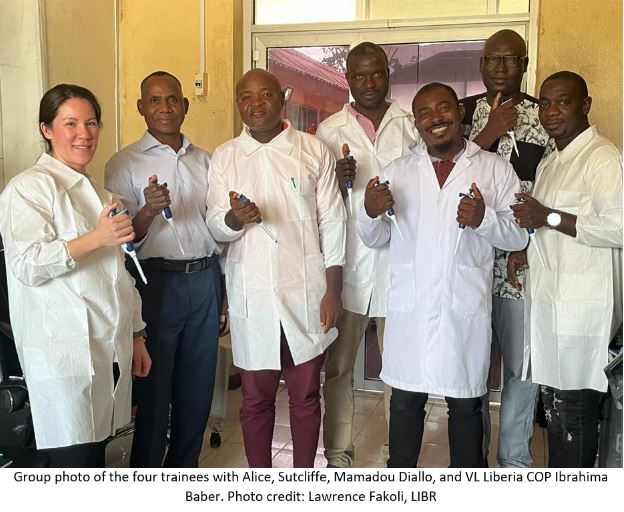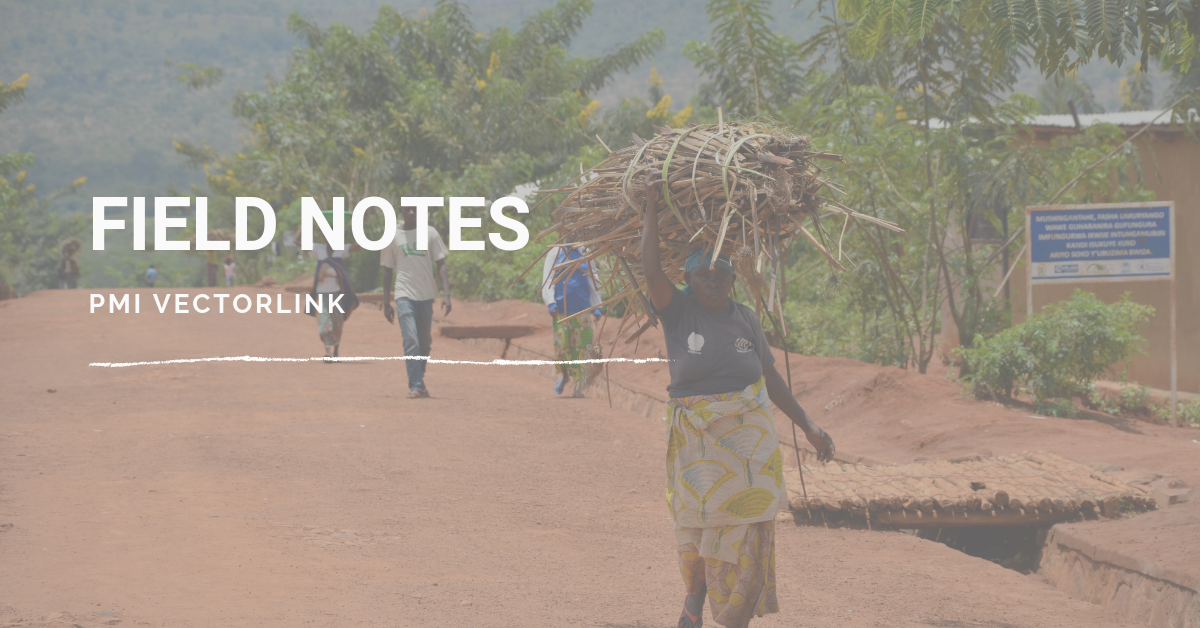 Laboratory identification of mosquito species, bloodmeal source, and genetic markers of resistance fill crucial knowledge gaps needed to make well-informed vector control decisions. In Liberia, PMI VectorLink has worked with the Liberian Institute for Biomedical Research (LIBR) over the last four years as they processed mosquito samples using enzyme-linked immunosorbent assay (ELISA) to detect the presence of malaria parasites in the mosquitoes. This week, we’re celebrating PMI VectorLink Liberia for their work in facilitating the expansion of LIBR’s molecular entomology capacity to include polymerase chain reaction (PCR) tests, which will reinforce species identification from the field and expand knowledge on molecular mechanisms of insecticide resistance and bloodmeal host preference of malaria-transmitting vectors.
Laboratory identification of mosquito species, bloodmeal source, and genetic markers of resistance fill crucial knowledge gaps needed to make well-informed vector control decisions. In Liberia, PMI VectorLink has worked with the Liberian Institute for Biomedical Research (LIBR) over the last four years as they processed mosquito samples using enzyme-linked immunosorbent assay (ELISA) to detect the presence of malaria parasites in the mosquitoes. This week, we’re celebrating PMI VectorLink Liberia for their work in facilitating the expansion of LIBR’s molecular entomology capacity to include polymerase chain reaction (PCR) tests, which will reinforce species identification from the field and expand knowledge on molecular mechanisms of insecticide resistance and bloodmeal host preference of malaria-transmitting vectors.
Since March 2022, PMI has conducted remote trainings for two LIBR staff members on these molecular analysis techniques as well as troubleshooting processes to improve the PCR tests. The trainings were successful, and the trainees are currently performing PCR tests for Anopheles gambiae mosquito identification. While the remote trainings covered PCR basics, the team required more mentoring on advanced PCR protocols including detection of molecular resistance mechanisms and bloodmeal source analysis, so PMI sponsored an in-person training for four LIBR staff members who will be involved in processing the backlog of mosquito samples that have been collected by VectorLink Liberia and the NMCP from various sites in Liberia over the past few years.
From January 23 to 27th, Alice Sutcliffe from CDC was in Liberia to train the four LIBR staff on molecular lab analyses, including the molecular identification of Anopheles gambiae mosquitoes and identifying mutations that lead to insecticide resistance and determine their host biting preference. During the five-day training, the team performed all these tests successfully. Dr. Mamadou Diallo, the CDC PMI resident advisor in Liberia, attended the first day of training to emphasize PMI’s support for local capacity strengthening and encouraged the participants to use this opportunity to develop their skills.
The next step for the four trainees will be to begin processing field samples to generate the entomological data needed to better understand mosquito behavior and insecticide resistance that will inform the impact evaluation of the IG2 nets distributed country wide in 2021 and to plan an effective vector control strategy.
Congratulations to our Liberia team, as well as to the parent institute of the LIBR—the National Public Health Institute of Liberia (NPHIL) and NMCP management on a successful training, and thanks to Alice for facilitating it. This is a great achievement as VL Liberia strengthens its collaboration with LIBR/NPHIL and the NMCP.


